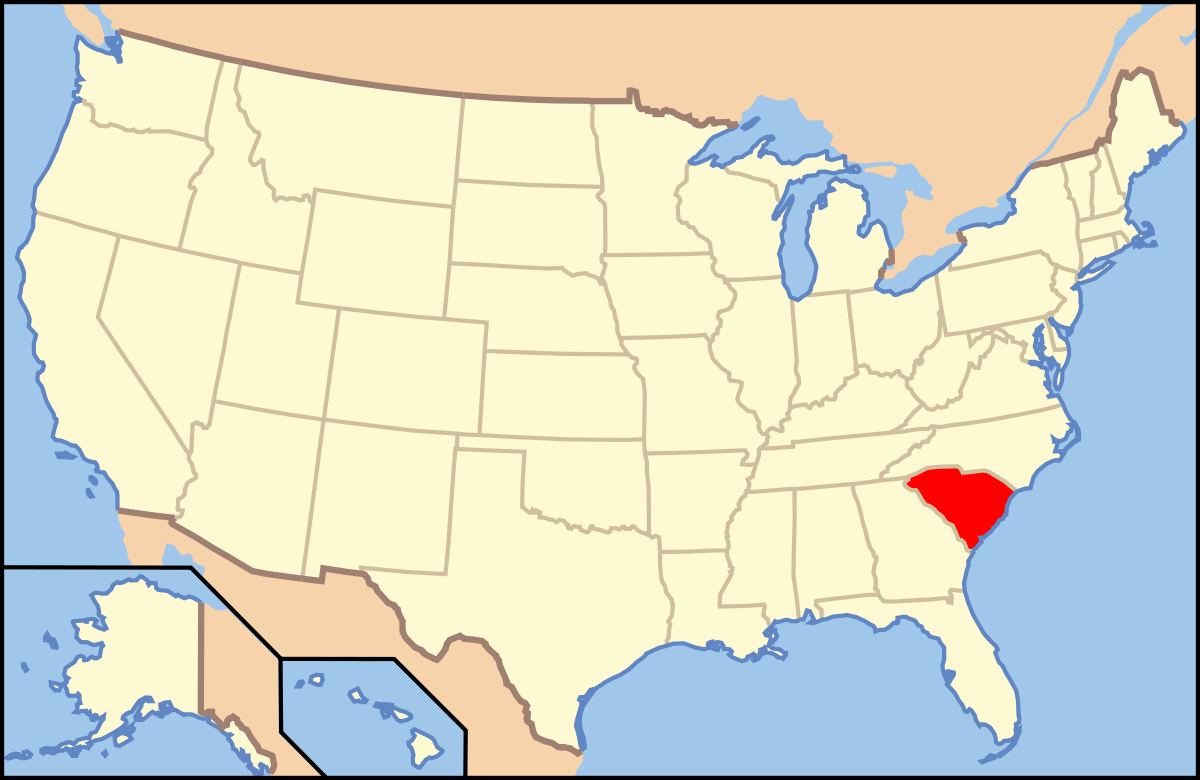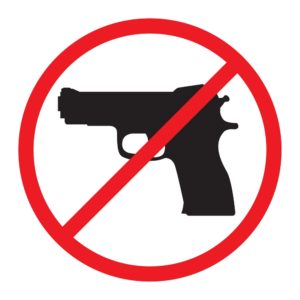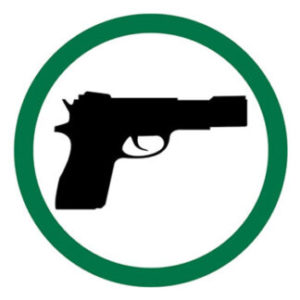What You Need To Know About Gun Laws in South Carolina
If you are in South Carolina but aren’t too sure about the gun laws in South Carolina, then you’ve come to the right place to learn more. In this guide, we will be taking a brief look at the gun laws in South Carolina, and following these laws should keep you out of any legal trouble.
Overview
South Carolina is a state that operates on a “Shall Issue” policy. This means that residents and non-residents in South Carolina are allowed to have concealed carry permits. There are requirements that need to be met in order to get a concealed weapon permit in the state and we’ll be taking a deeper look into it shortly.
Is Open Carry Permitted in South Carolina?
Yes, South Carolina is an open-carry state which means it allows concealed weapons permit (CWP) holders to openly carry a concealable weapon.
In terms of weapon, open carry is allowed for a gun “having a length of fewer than 12 inches measured along its greatest dimension that may be carried openly on one’s person or in a manner that is hidden from public view in normal wear of clothing except when needed for self-defense, defense of others, and the protection of real or personal property.”
Reciprocity
Reciprocity refers to the agreement between two states to recognize each other’s laws and South Carolina has reciprocity with a number of states when it comes to concealed weapons permits.
CWP permit holders from other states can have their permits honored as long as they are residential permits. If a state is in South Carolina’s state reciprocity list, you need to be a resident of that state too for the permit to be honored in South Carolina.
States that honor a South Carolina CCW permit
Here are the states that honors an SC permit:
- Residential – Alabama, Alaska, Arizona, Arkansas, Florida, Georgia, Idaho, Indiana, Iowa, Kansas, Kentucky, Louisiana, Michigan, Minnesota, Mississippi, Missouri, Montana, Nebraska, Nevada, New Mexico, North Carolina (NC), North Dakota (ND), Ohio, Oklahoma, South Dakota (SD), Tennessee, Texas, Utah, Vermont, Virginia, West Virginia (WV), Wisconsin, and Wyoming.
- Non-residential – Alabama, Alaska, Arizona, Arkansas, Georgia, Idaho, Indiana, Iowa, Kansas, Kentucky, Louisiana, Minnesota, Mississippi, Missouri, Montana, Nebraska, Nevada, New Mexico, NC, ND, Ohio, Oklahoma, SD, Tennessee, Texas, Utah, Vermont, Virginia, WV, Wisconsin, and Wyoming.
State permits that South Carolina honors
Here are the state permits that SC will honor:
- Residential – Alaska, Arizona, Arkansas, Florida, Georgia, Idaho, Kansas, Kentucky, Louisiana, Michigan, Mississippi, Missouri, New Mexico, NC, ND, SD, Ohio, Oklahoma, Tennessee, Texas, Virginia, WV, and Wyoming
For states like Idaho, Mississippi, ND, and SD, South Carolina will only honor the enhanced permit from those states. As for WV, the permit holder must be 21 years old or older.
States that don’t accept a South Carolina permit
Here are the states that don’t accept an SC permit:
- California, Colorado, Connecticut, Delaware, District of Columbia, Hawaii, Illinois, Maine, Maryland, Massachusetts, New Jersey, New Hampshire, New York, Oregon, Pennsylvania, Rhode Island, and Washington.
SC Concealed Weapons Permit
If you want to get a concealed carry permit in South Carolina, it would be wise to learn about the requirements, its application process, as well as how you can renew the permit.
License Requirements
To be a concealable weapon permit holder in South Carolina, you will need to meet the following requirements:
- You must be at least 21 years old.
- You should have successfully completed an approved firearms training class.
- You must be a resident of South Carolina, or if you are a resident of another state, proof that you own a property in the state has to be submitted.
- You must not be convicted of a violent crime that is a felony.
- You need to have an actual or corrected vision of 20/40.
- You must not be a person who, by order of a circuit judge or county court judge of South Carolina, has been adjudged unfit to carry or possess a firearm.
License Application Process
Here’s what the process will usually look like if you want to get a CWP permit in the state:
- Finish the firearm training course if needed.
- Download the application form.
- Prepare the following documents:
- A photocopy of your driver’s license or state ID card.
- For non-resident applicants, a real property tax form R168.
- An application form with the signature of you and your firearms instructor.
- Two complete fingerprint cards.
- A non-refundable payment of $50 in the form of a certified check, cashier’s check, or money order made payable to the South Carolina Law Enforcement Division (SLED) SLED.
- A signed copy of the SLED CWP Instructor/Student Checklist.
- For active-duty military applicants, the military orders must be submitted.
- Retired or former military applicants must submit a copy of their DD214.
Once you’ve prepared the necessary documents, you can mail them to CWP Application, SLED Data Center, PO Box 21398, Columbia, SC 29221-1398. When your application is approved, you will be notified by mail.
Non-resident permits are given out if the applicant can provide proof of property ownership in the state. The property tax form has to be downloaded and signed by an Assessor to verify that the applicant is the property owner.
License Renewals
If you wish to renew your permit in the state, you should be aware that the State Law Enforcement Division mentioned that it will take approximately 65 days to process renewals. Here is some information that you should know about the renewals of permit:
- Renewal applications are usually mailed out 90 to 120 days before permits expire.
- Submission of the photocopy of your state drivers license or ID card is required.
- Non-residents are required to submit a property tax form.
- Resident aliens are required to submit a copy of their alien card.
Online renewals are also available in the state, but you will have to meet the following conditions:
- You are making the renewal application within 89 days of the permits expiry date.
- The application is not over 60 days past the permits expiry date.
- No changes have been made to the information on your permit since your last application.
If there are any changes to your information like changing address, phone number, or name, then a paper application has to be submitted. This application can be downloaded and once it is completed, you can mail it to SLED. Remember to include money order, cashiers check, or certified check for $50 and payable to SLED.
License Fees
Applying for a concealed weapons permit in the state will cost you $50 and it’s the same for renewal as well. The accepted forms of payment are certified check, cashiers check, or money order and it should be made payable to SLED.
Places Off-Limits for CCW
Here is a list of places that are not allowed for people with or without a permit to carry a concealed weapon:
- Restaurants that serve alcohol to be consumed on the premises, unless you do not consume alcoholic liquor in any way.
- Police stations, Sheriff’s departments, or any law enforcement office or facility.
- A courthouse or courtroom.
- A polling place during election days.
- A detention facility or correctional facility.
- Any publicly owned building or property without the persons in charge permitting it.
- State Capitol building or Capitol grounds. However, the firearm can be kept locked in a vehicle.
- Office of or the business meeting of the governing body of a county, public school district, municipality, or special purpose district.
- School or college athletic event that isn’t related to firearms.
- Daycare or preschool facility.
- Anywhere that the federal law prohibits you from carrying a firearm.
- Church or other established religious sanctuary.
- In a hospital, medical clinic, doctor’s office, or other places where medical services are performed, the head of the facility has given permission.
- Places with a clear posted sign prohibiting you from carrying a concealable weapon on the premises.
- A home, apartment, or any dwelling place, unless an express permission of the person living at the residence is given.
Places Legal for CCW
While there are places that don’t allow you to carry a concealable weapon, there are places that allow it. And the places are:
- State parks
- State and national forests
- Roadside rest areas
- Vehicle
- Everywhere else in the state, except for those that are prohibited
Handgun Laws To Know in SC
Here are some other gun laws in South Carolina that you should be aware of.
Vehicle carry
According to South Carolina law, you are allowed to carry a handgun loaded or unloaded in a vehicle even if you do not have a permit. However, you need to be a person that can legally own a firearm to do so and the firearm has to be placed in a closed glove box, console, or trunk of the vehicle.
If the vehicle doesn’t have a trunk, then the firearm has to be placed in the luggage area enclosed in a container and kept in place with fasteners. Bear in mind that you will be charged if the firearm is found in any other place such as in a purse, under the seat, or on the seat.
Must notify officer
The laws in South Carolina require you to inform law enforcement officers if you are carrying concealed weapons when approached on official business. It is also a legal requirement that you carry your permit at all times during which the person is in actual possession of a concealed handgun.
Constitutional carry
Unfortunately, this state does not have constitutional carrying in play.
Preemption
There is a full state preemption over gun laws in the state and the statute states:
- No governing body of any county, municipality or other political subdivision in the State may enact or promulgate any regulation or ordinance that regulates or attempts to regulate:
- the transfer, ownership, possession, carrying, or transportation of firearms, ammunition, components of firearms, or any combination of these things; or
- a landowner discharging a firearm on the landowner’s property to protect the landowner’s family, employees, the general public, or the landowner’s property from animals that the landowner reasonably believes pose a direct threat or danger to the landowner’s property, people on the landowner’s property, or the general public. For purposes of this item, the landowner’s property must be a parcel of land comprised of at least twenty-five contiguous acres. Any ordinance regulating the discharge of firearms that do not specifically provide for exclusion pursuant to this item is unenforceable as it pertains to an incident described in this item; otherwise, the ordinance is enforceable.
Training requirements
As mentioned earlier, you are required to submit a “proof of training” to apply for a concealed weapons permit in the state. This “proof of training” is essentially referring to an original document or certified copy of the document supplied by an applicant that certifies that he is either:
- a person who, within three years before filing an application, has successfully finished a basic or advanced handgun education course offered by a state, county, or municipal law enforcement agency or a nationally recognized organization that promotes gun safety. This course must include, but is not limited to:
- a. information on the statutory and case law of this State relating to handguns and to the use of deadly force;
- b. information on handgun use and safety;
- c. information on the proper storage practice for handguns with an emphasis on storage practices that reduces the possibility of accidental injury to a child; and
- d. the actual firing of the handgun in the presence of the instructor.
- a person who demonstrates any of the following must comply with the provisions of sub item 1.a. only:
- a. a person who demonstrates the completion of basic military training provided by any branch of the United States military who produces proof of his military service through the submission of a DD214 form;
- b. a retired officer of the law who produces proof that he is a graduate of the Criminal Justice Academy or that he was a law enforcement officer prior to the requirement for graduation from the Criminal Justice Academy; or
- c. a retired state or federal law enforcement officer who produces proof of graduation from a federal or state academy that includes firearms training as a graduation requirement.
Conclusion
Many people possess handguns for various purposes such as personal defense, target shooting, hunting, and others. However, if you are not aware of the local laws, you might face legal troubles for violating a law.
Thankfully, this guide is here to help you avoid those troubles by understanding how concealed weapons permits can be granted and also being aware of the laws regarding the legal possession of firearms.
FAQ
Who is not allowed to possess or carry a handgun in SC?
Here is a list of persons who are prohibited to legally possess or carry a handgun in the state:
- A person who has been convicted of a felony, a violent crime, a crime of criminal domestic violence, or is under a domestic order of protection (otherwise known as a restraining order in the family court) is not allowed to own a firearm or ammunition.
- A drug addict or user, an illegal alien, an alien under a non-immigrant visa, a veteran who was dishonorably discharged, or a fugitive from justice is not allowed to own or carry a firearm or ammunition.
- A person who isn’t a felon, but is awaiting trial on felony charges is prohibited from owning a firearm.
- A person who is on probation or parole.
- A person declared by the court of law to be mentally incompetent.
- A person who was ordered to surrender their firearms.
For people who are no longer under a domestic order of protection or were convicted of CDV but had it expunged, there is a chance to restore their gun rights.
Are the fees exempted for disabled veterans?
Yes. If you are a disabled veteran, you can expect no fees or charges when you apply for a concealed weapons permit. However, you do need to provide a VA card to verify your status.
Am I allowed to sell my handgun in South Carolina?
Yes, you are. But, you are not allowed to sell, offer to sell, deliver, lease, rent, barter, exchange, or transport for sale into this state any handgun to people who are not allowed to possess or carry a handgun in the state.
You are also not allowed to buy, sell, own, or carry a handgun where the original serial number was removed or obliterated. It would be wise to contact a criminal lawyer for his or her advice on how to dispose of it.
If you are selling your handgun, we would recommend you get a lawyer to draft a Bill of Sale so the transfer can be documented. As such, if in any case the gun you sold was involved or used in a crime, you have proof that the gun legally left your possession and was passed to someone else.
Do I need training again if my permit expires?
No. The law doesn’t say that you need to go through training again if your permit has expired for more than 60 days past the expiry date.

Hello there, it’s Michael here. A gun lover since young, served the country for the last 20 years. I started the blog to share my experience and gun-related knowledge accumulated throughout the years. Hopefully, you will find something useful over here or just have fun! You can learn more about me here.



